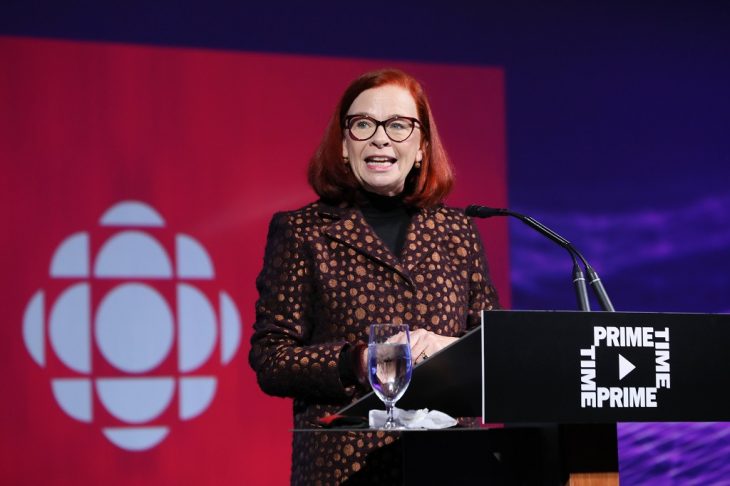
By Catherine Tait, president and CEO of CBC/Radio-Canada
In 2022, CBC/Radio-Canada asked hundreds of people with disabilities: If you had a magic wand to make accessibility barriers disappear in one area, which one would it be?
Employment? Built environment? Transportation? Any of the other seven priority areas in the Accessible Canada Act to make Canada barrier-free by 2040?
The answer? None of the above.
Canadians living with disabilities said that attitudes were the greatest barrier they face to full and equal participation in society. Few people understand what life is like with a disability, and many hold incorrect assumptions or prejudiced attitudes. Removing barriers in our buildings and technologies is essential, yes, but we also need changes that go deeper.
When we spoke to people with disabilities as part of our consultations while developing our National Accessibility Plan, we heard again and again that attitudinal barriers disappear when people build relationships and share stories.
During National AccessAbility Week and every other week of the year, this is how the media can reduce barriers for people with disabilities: by making our content accessible, and ensuring authentic representation of disability in our stories.
Stories are powerful. Reading fiction increases empathy for others. Racialized kids who see themselves represented on screen in non-stereotyped ways have higher self-esteem. And TV shows can reduce prejudice.
But there have not been enough stories by and about people with disabilities. While people with disabilities make up more than one-quarter of the Canadian population, they are rarely portrayed in Canadian television. And when disabled characters do appear on screen, they are too often stereotyped as victims, heroes or villains. We need more and better media representations of disability.
At CBC/Radio-Canada, we are committed to doing more. Our first progress report shows the many strides we have made since launching our accessibility plan last year. I’m pleased that a majority of our audience members with disabilities agree that we reflect people with disabilities in our content.
We want to be a world leader in accessibility, propelled by the contributions of people with disabilities. This ambition will make us a better employer, and it will make us better at covering news stories that relate to disability and putting creatives with disabilities in the driver’s seat of telling their own stories.
Creatives like Sean Towgood, who drew on his experiences living with cerebral palsy to write and star in CBC comedy You’re My Hero. And Rabiya Mansoor, Nisha Khan and Marushka Jessica Almeida, creators of Get Up Aisha, who drew on their experiences with depression for the dramedy about a Pakistani-Canadian who grapples with her compulsive need for control as she deals with depression.
I’m proud of these comedies, just as I’m proud of journalistic work like CBC Marketplace’s investigation into the barriers to travel in Canada, Access Denied, and CBC’s documentary series, Push, which shows the inner world of a group of friends bonded by their shared experience of life on wheels.
And this summer, at the Paris 2024 Paralympic Games, CBC/Radio-Canada will celebrate 10 years as Canada’s official Paralympic broadcaster. It has been such a delight to cover the incredible athletic feats of Paralympians and to bring their personal stories to Canadians.
In addition to making more media about people with disabilities, we are making our media more accessible to people with disabilities. For instance, CBC Gem and ICI TOU.TV users can now customize their closed captions to meet their needs, and more easily identify content available with described video.
As we did with the last Olympic and Paralympic Games, we will be broadcasting the Opening Ceremony in Paris with closed captioning and described video, and in American Sign Language and Quebec Sign Language.
We have more work to do at CBC/Radio-Canada, and we are committed to doing it. We encourage other media organizations, independent producers, talent agencies and regulators to join us.
There’s no magic wand to reduce attitudinal barriers. Nonetheless, a barrier-free Canada is far from a fantasy when we all do our part. It is an attainable reality, and it gets closer every day.
HIGH QUALITY JOURNALISM REQUIRES AN INVESTMENT.
Cartt.ca publishes breaking news, in-depth feature stories, analysis, and opinion geared specifically for those working in the cable, radio, television, and telecom industries in Canada.
Breaking news, top-notch analysis and commentary is posted as it happens while twice-weekly newsletters compile those stories and deliver them directly to more than 4,000 industry subscribers. Cartt.ca offers credible journalism for the industry professional.




